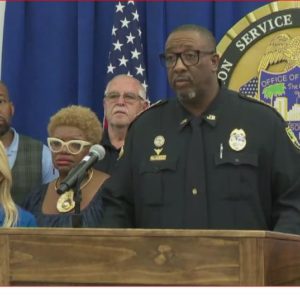My school district thought that it would just a fabulous idea to have the faculty report at the end of August, and not wait until September as they had for, say, the past 110 years. And to try and mollify us, in addition to giving us something to think about, they contracted with Dr. Robert Brooks and had him deliver a lecture about why it’s key that educators create an atmosphere of trust, respect and comfort for our students.
Dr. Brooks’s main point was that in order for students to reach their potential as learners, teachers need to provide a supportive, engaging, safe environment in their classrooms. Students should feel welcomed and respected, and they should know that the teacher is going to provide them with opportunities to demonstrate their knowledge, to work through problems, and to fail, as long as we also provide them with opportunities to correct their mistakes. He also spoke at length about creating resilient children who can use their life experiences, temperament and previous knowledge so they can feel successful and confident in their abilities. Much of what he said reflected what many educators learned in the 1980s and 90s through the Madeline Hunter Instructional Theory Into Practice model. Hunter spoke of “feeling tone'” which was a method of making one’s classroom into, you got it, a supportive, engaging, safe environment.
This all sounds reasonable, but then Dr. Brooks lost me completely.
On two occasions during his lecture, he stated that “teachers do not teach math, history, science, 2nd grade or 3rd grade.” His point was that we should be focusing on how students feel in the classroom and making them feel comfortable and welcomed in school.
I could not disagree more.
From the time I began teaching 35 years ago, I have called myself a “History Teacher.” Not Social Studies–History. There’s a difference. My view is that students need to know the subject, and through the subject they learn the disciplines inherent in that subject, the different strategies and learning modalities necessary to succeed in that subject, and the facts, arguments and research that informs the subject. It’s through the subject that a student finds their level of engagement and interest, and it’s up to the teacher to make that subject as relevant to the student as they can. The subject must drive the teacher’s approach to education and to their classroom management. In sum, the subject comes first, then comes the environment.
I do agree with every educational theorist on the merits of creating a classroom environment where students feel welcome and safe, and where children know that the teacher can be trusted to provide them with worthwhile activities and information that will allow them to succeed. But we need to do that through our subjects, not first or separate. I want resilient students who can evaluate their own work against a rubric and edit, rewrite or change their minds to make a more cogent historical argument, and I will create a classroom environment that values those approaches.
What Dr. Brooks did not mention was that learning in and of itself is stressful. It’s difficult to fit contradictory or seemingly unfathomable facts into your worldview. I will challenge students and ask difficult questions and, at times, make students uncomfortable because that’s how you can assess learning. Many times students leave the classroom, and not just mine, without a resolution or with more questions that need answers. And it’s all driven by the subject.
What’s happened in education over the past 15 years is that educators have been told to focus more on mindsets, resilience and students’ emotional concerns at the expense of actually teaching them a body of knowledge. Academic skills have become more important than facts because, after all, if you can learn how to analyze a source, you can do that in every subject, right? The Common Core gets some of the blame because it was a list of skills that students needed to learn. I thought that was great, but the problem was that the skills ate the content. The other problem is the assumption that we are living in a post-fact world because, after all, you can just look it up on the Internet. As a response to that folly, I am actually planning more lessons that don’t require students to open their computers.
Teachers must teach their subjects first and foremost and use that subject to create an inviting classroom where students know they can succeed. To my colleagues around the country, I hope that you and your students have a successful year, and that by the end you have students who are both knowledgeable and happy.
For more, go to www.facebook.com/WhereDemocracyLives or Twitter @rigrundfest
Facebook Comments









